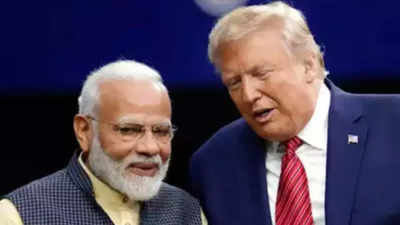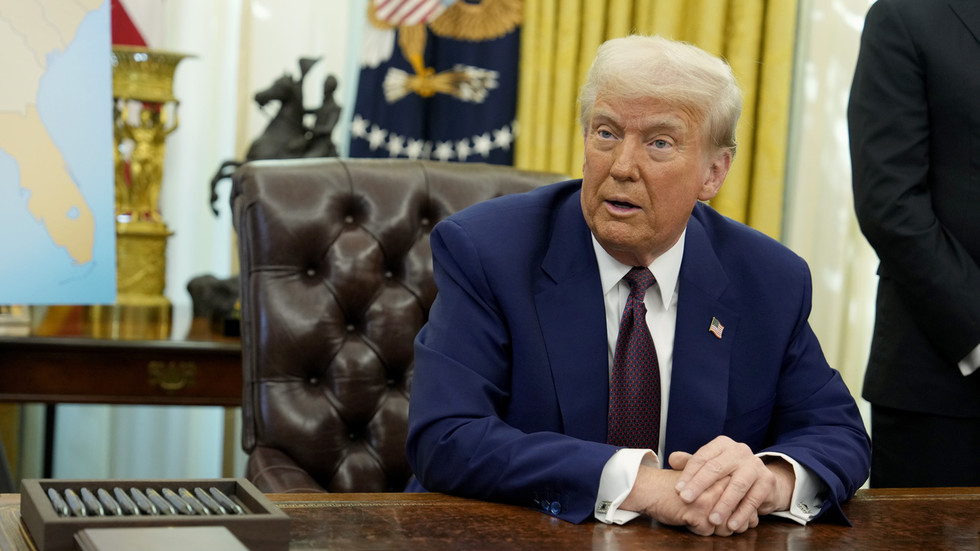
Hours before meeting Prime Minister Narendra Modi, US President Donald Trump on Thursday rolled out his plan for comprehensive "
reciprocal tariffs
" affecting both allies and rivals, intensifying global
trade tensions
that economists suggest could lead to domestic inflation.
"I’ve decided for purposes of fairness that I will charge a reciprocal tariff," Trump said in the Oval Office. “It’s fair to all. No other country can complain.”
In an Oval Office statement, Trump confirmed his decision, stating that US allies frequently proved "worse than our enemies" regarding trade matters.
The duties would be customised for each trading partner, taking into account non-tariff elements including value-added tax (VAT).
The announcement preceded Trump's scheduled meeting with PM Modi in Washington. Experts suggest emerging markets like India and Thailand, with higher effective tariff rates on US goods, could face significant impacts, while countries with existing trade agreements may be less affected.
Peter Navarro, Trump's trade advisor, specifically criticised the European Union's VAT practices, stating that "Major exporting nations of the world attack our markets with punishing tariffs and even more punishing non-tariff barriers."
The United States will initially focus on economies with the largest deficits or "most egregious issues," according to a White House representative.
The anonymous official indicated implementation would take "a few months, but not much longer than that."
Trump acknowledged potential price increases due to tariffs but expressed optimism about eventual stabilisation.
Since taking office, Trump has implemented various tariffs targeting major trading partners, arguing these measures address unfair practices and can influence policy decisions.
The president views tariffs as revenue generators, trade imbalance solutions, and diplomatic leverage tools.
The White House representative cited unfair treatment and lack of reciprocity as factors behind America's persistent trade deficit.
The signed memorandum directs the US Trade Representative, commerce secretary and other officials to propose country-specific solutions.

 3 hours ago
3
3 hours ago
3






